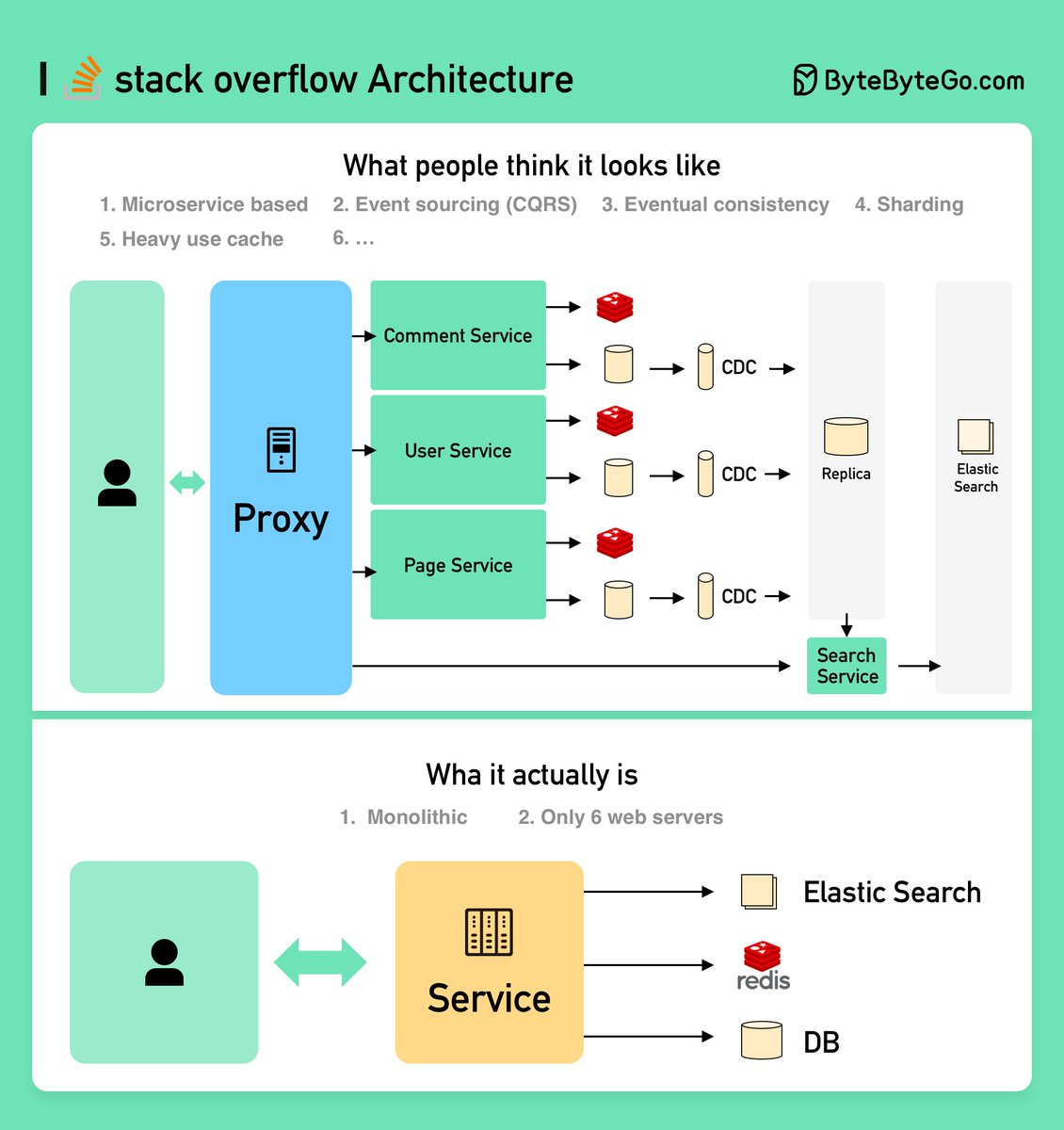/1 How will you design the Stack Overflow website? If your answer is on-premise servers and monolith (bottom), you would likely fail the interview, but that's how it is built in reality! https://t.co/gygb1HbzxN

/2 𝐖𝐡𝐚𝐭 𝐩𝐞𝐨𝐩𝐥𝐞 𝐭𝐡𝐢𝐧𝐤 𝐢𝐭 𝐬𝐡𝐨𝐮𝐥𝐝 𝐥𝐨𝐨𝐤 𝐥𝐢𝐤𝐞
The interviewer is probably expecting something at the top.
1. Microservice is used to decompose the system into small components.
2. Each service has its own database. Use cache heavily. https://t.co/EK2FCK9T60

/3 3. The service is sharded.
4. The services talk to each other asynchronously through message queues.
5. The service is implemented using Event Sourcing with CQRS.
6. Showing off knowledge in distributed systems such as eventual consistency, CAP theorem, etc.
/4 𝐖𝐡𝐚𝐭 𝐢𝐭 𝐚𝐜𝐭𝐮𝐚𝐥𝐥𝐲 𝐢𝐬
Stack Overflow serves all the traffic with only 9 on-premise web servers, and it’s on monolith! It has its own servers and does not run on the cloud.
This is contrary to all our popular beliefs these days. https://t.co/326qYYsmEG

/5 👉 Over to you: what is good architecture, the one that looks fancy during the interview or the one that works in reality?
/6 Reference:
[1] Podcast by @rla4 and@shanselman: https://hanselminutes.com/847/engineering-stack-overflow-with-roberta-arcoverde
[2] https://stackexchange.com/performance
